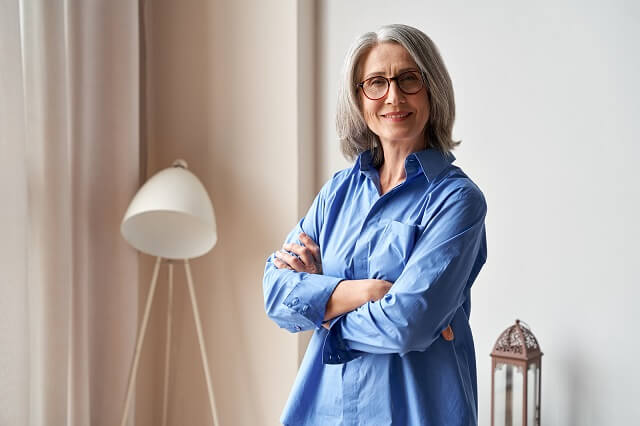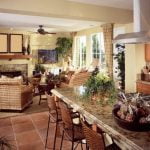Thailand home decor is a beautiful and vibrant reflection of the country’s rich cultural heritage. From traditional elements to modern influences, Thai interior design encompasses a wide array of signature styles, materials, and techniques that create a unique and inviting atmosphere.
In this article, we will explore the colorful tradition of Thailand home decor, delving into its traditional elements, color palette, furniture and handicrafts, incorporation of nature, textiles and fabrics, fusion of modern and traditional styles, as well as practical tips for incorporating these elements into your own living space.
Traditional Thai home decor is characterized by its intricate patterns, vibrant color palette, and use of natural materials such as bamboo, wood, and plants. Each element within a Thai home reflects the country’s deep-rooted traditions and cultural practices. From handcrafted furniture to exquisite textiles like silk and batik, every detail in a Thai home tells a story.
In this article series on Thailand home decor, we will take a closer look at each aspect of this rich tradition – from the history behind it to tips for integrating these elements into your own personal space. Whether you’re looking to completely transform your interior or simply add subtle touches of Thai charm to your home, this exploration of Thailand home decor will provide you with insights and inspiration.
Traditional Thai Home Decor Elements
Traditional Thai home decor is a rich tapestry of tradition, culture, and craftsmanship. At the heart of this design style are signature elements that have been passed down through generations, creating a unique aesthetic that is instantly recognizable. From the use of natural materials to intricate handcrafted designs, understanding the traditional Thai home decor elements is key to appreciating and incorporating this style into modern living spaces.
One of the most prominent features of traditional Thai home decor is the use of natural materials such as bamboo, teak wood, and rattan. These materials not only add a rustic and earthy feel to the living space but also reflect Thailand’s close connection to nature. The use of these materials extends beyond furniture to include decorative elements such as woven baskets, wooden carvings, and nature-inspired motifs in textiles and wall hangings.
In addition to natural materials, traditional Thai interior design also relies heavily on intricate craftsmanship and attention to detail. Hand-carved wooden furniture, delicate porcelain ceramics, and ornate metalwork are all essential to creating an authentic Thai aesthetic. Techniques such as carving, weaving, and painting are often passed down through artisanal families or learned from master craftsmen, adding a deeply personal touch to each piece of decor.
Furthermore, traditional Thai home decor often incorporates symbolic elements such as lotus flowers, elephants, dragons, and other cultural motifs. These symbols not only add beauty to the space but also carry deeper meanings related to spirituality, beliefs, and heritage in Thailand. As a result, they play a crucial role in shaping the overall ambiance and character of a traditional Thai home.
| Traditional Elements | Characteristics |
|---|---|
| Natural Materials | Bamboo, teak wood, rattan |
| Craftsmanship | Hand-carved furniture, delicate ceramics |
| Symbolic Motifs | Lotus flowers, elephants |
Color Palette and Patterns
Thailand is known for its vibrant and colorful home decor, which reflects the rich cultural heritage of the country. The color palette and intricate patterns used in Thai home decor are an integral part of the traditional design style.
In Thailand, bold and contrasting colors are often used to create a visually striking and dynamic aesthetic. From vivid reds and yellows to deep blues and greens, the color palette of Thailand home decor is inspired by the natural beauty of the country.
In addition to the bold use of color, Thai home decor is also characterized by intricate patterns that add depth and texture to interior spaces. These patterns are often inspired by nature, with motifs such as flowers, leaves, and animals commonly featured in textiles, wall coverings, and decorative objects. The use of geometric shapes and abstract designs is also prevalent in Thai home decor, adding a modern touch to traditional elements.
When it comes to incorporating Thailand home decor into your own living space, it’s important to consider the impact of color and pattern on the overall look and feel of the room. By introducing elements from Thai design such as colorful textiles, vibrant accessories, or intricately patterned wallpaper, you can infuse your home with the boldness and energy characteristic of Thailand’s interior style.
| Aspect | Description |
|---|---|
| Color Palette | The color palette of Thailand home decor includes bold and contrasting colors such as vivid reds, yellows, blues, and greens. |
| Intricate Patterns | Thai home decor features intricate patterns inspired by nature, including motifs such as flowers, leaves, animals, as well as geometric shapes and abstract designs. |
| Incorporating Design Elements | To incorporate Thailand home decor into your space, consider adding colorful textiles, vibrant accessories, or intricately patterned wallpaper to infuse your living space with the energetic aesthetic of Thai interior design. |
Thai Furniture and Handicrafts
Thailand is renowned for its exquisite handcrafted furniture and traditional handicrafts, all of which play a pivotal role in Thai home decor. These pieces not only add a touch of elegance to any space but also reflect the rich cultural heritage and craftsmanship of the Thai people.
Signature Styles and Materials
One of the hallmarks of Thai furniture and handicrafts is the intricate carvings and attention to detail. Whether it’s a beautifully carved teak wood table or a handwoven bamboo chair, these pieces often feature traditional motifs and designs that are unique to Thailand. Additionally, materials such as rattan, bamboo, and teak wood are commonly used in crafting furniture and decor items, adding a natural and organic element to the overall aesthetic.
Traditional Techniques
Many of the furniture and handicrafts in Thailand are created using age-old techniques that have been passed down through generations. Artisans often employ methods such as hand carving, weaving, and dyeing to create stunning and durable pieces that stand the test of time. The level of skill and artistry involved in producing these items is truly exceptional, making them coveted additions to any home.
Uniqueness of Thai Handicrafts
What sets Thai furniture and handicrafts apart is their ability to seamlessly blend tradition with functionality. From intricately carved wooden chests to delicate pottery adorned with floral motifs, each piece tells a story and brings a sense of authenticity to any interior. By incorporating these unique elements into your home decor, you can infuse your living space with the charm and beauty of Thailand’s rich artistic heritage.
Incorporating Nature
When it comes to Thailand home decor, the incorporation of natural elements plays a significant role in creating a harmonious and serene living space. In Thai interior design, the use of bamboo, wood, and plants brings a sense of tranquility and connection to nature. These elements are not only visually appealing but also contribute to the overall balance and energy of the home.
Bamboo: A Versatile and Sustainable Material
Bamboo is a staple in Thailand home decor due to its versatility and sustainability. This fast-growing plant is used in various aspects of interior design, such as furniture, flooring, and decorative accents. The natural color and texture of bamboo add warmth and organic charm to any space, making it a popular choice for those seeking to infuse their homes with Thai-inspired decor.
Wood: Timeless Elegance in Thai Interior Design
In Thai home decor, wood plays a crucial role in creating a sense of timeless elegance. From intricately carved teak furniture to polished wooden floors, the use of wood brings a touch of sophistication while maintaining a connection to nature. The rich hues and natural grain patterns of wood add depth and character to living spaces, providing a sense of warmth and comfort.
Plants: Bringing Life and Freshness Indoors
Plants are an essential component of Thailand home decor, as they symbolize growth, vitality, and harmony. From lush tropical plants like palms and orchids to simple arrangements of fresh flowers, incorporating greenery into the home brings life and freshness indoors. In addition to their aesthetic appeal, plants also contribute to better air quality and overall well-being within the living environment.
Incorporating natural elements like bamboo, wood, and plants into your home can help you capture the essence of traditional Thai interior design. By embracing these elements, you can create a space that exudes tranquility, balance, and connection to nature – essential characteristics of Thailand home decor.
Thai Textiles and Fabrics
When it comes to Thai home decor, the use of textiles is not limited to just furnishings and upholstery. Textiles are also utilized in wall hangings, curtains, tablecloths, and decorative accents. The vibrant colors and elaborate patterns of Thai fabrics bring a sense of warmth and opulence to the home, creating a welcoming atmosphere for residents and guests alike.
To incorporate Thailand home decor into your own living space using textiles and fabrics, consider the following:
- Choose authentic Thai silk for throw pillows or upholstered furniture
- Adorn your walls with traditional Thai tapestries or woven fabric panels
- Opt for batik table runners or place mats to add a touch of cultural charm to your dining area
By integrating these elements into your home, you can infuse your living space with the timeless beauty and allure of Thailand’s textile traditions. Whether you prefer a more contemporary look or wish to embrace traditional Thai design, the use of exquisite textiles and fabrics can transform any room into a stunning showcase of Thailand home decor.
Fusion of Modern and Traditional
When it comes to Thai home decor, the fusion of modern and traditional elements is a key feature that sets it apart. The seamless integration of old-world charm with contemporary design aesthetics creates a unique and captivating look for any living space. Here are some examples of how modern elements are incorporated into traditional Thai home decor:
- Minimalist Furniture: While traditional Thai furniture is often ornate and intricately detailed, modern homes in Thailand embrace the minimalist approach with sleek, clean-lined furniture pieces that complement the overall aesthetic.
- Technology Integration: In today’s digital age, modern elements such as smart home technology, integrated sound systems, and ambient lighting are seamlessly integrated into traditional Thai homes, enhancing comfort and convenience without compromising the authentic ambiance.
- Contemporary Art Pieces: Traditional Thai homes often feature religious or cultural art pieces. In modernized spaces, contemporary artwork or sculptures are strategically placed to add a touch of sophistication and artistic flair.
The blending of modern and traditional elements in Thailand home decor is a testament to the country’s ability to honor its rich heritage while embracing progress and innovation. It speaks volumes about Thailand’s dynamic culture and its openness to new ideas while preserving its time-honored traditions.
Incorporating this fusion of styles into your own living space can be achieved by striking a harmonious balance between old and new. By carefully selecting modern accents that complement rather than overpower traditional elements, you can create a stunning fusion of styles that pays homage to Thailand’s vibrant design heritage while catering to contemporary tastes.
Tips for Incorporating Thailand Home Decor Into Your Home
In conclusion, Thailand home decor offers a rich tapestry of tradition and style that can elevate any living space. From the vibrant color palette and intricate patterns to the handcrafted furniture and traditional handicrafts, Thai interior design embodies a sense of cultural heritage and artistry. By incorporating natural elements such as bamboo, wood, and plants, as well as exquisite textiles like silk and batik, one can infuse their home with the essence of Thailand.
Moreover, the fusion of modern elements with traditional Thai home decor allows for a seamless blend of old and new, creating a harmonious balance in any living space. Whether it’s through incorporating Thai furniture or integrating bold colors and patterns into your home, there are numerous ways to pay homage to the captivating allure of Thailand’s interior design.
For those looking to bring a touch of Thailand into their own homes, practical tips and ideas for incorporating these elements are readily available. Whether it’s through strategic placement of Thai textiles or utilizing specific color schemes inspired by Thailand, there are various ways to infuse your living space with the beauty of Thailand home decor.
With careful attention to detail and an appreciation for the cultural significance behind each element, one can create a truly unique and captivating living environment that reflects the essence of Thailand’s home decor tradition.
Frequently Asked Questions
What Is the Concept of Thai Interior Design?
The concept of Thai interior design is rooted in a harmonious balance of nature, tradition, and spirituality. It often incorporates natural materials, intricate wood carvings, vibrant colors, and symbolic decorations to create a sense of serenity and beauty.
What Are the Cultural Products of Thailand?
Thailand is known for its rich cultural products including traditional crafts like intricate ceramics, delicate silk fabrics, ornate wood carvings, and detailed metalwork. Additionally, Thai literature, dance, music, and cuisine are also significant cultural products that showcase the country’s creativity and heritage.
What Does a Typical Thai House Look Like?
A typical Thai house is characterized by its raised platform construction with steeply pitched roofs to protect from heavy rains. The use of natural materials such as teak wood and bamboo is common.
The interior usually features open spaces with minimal furniture to provide airflow and comfort in the tropical climate. Symbolic elements such as spirit houses and decorative patterns are also prevalent in Thai house design.

I’m thrilled to be your companion on this exciting journey through the world of home decor and design. With a passion for turning houses into homes and a keen eye for the finer details, I’m here to help you transform your living spaces into beautiful, functional, and meaningful havens.





